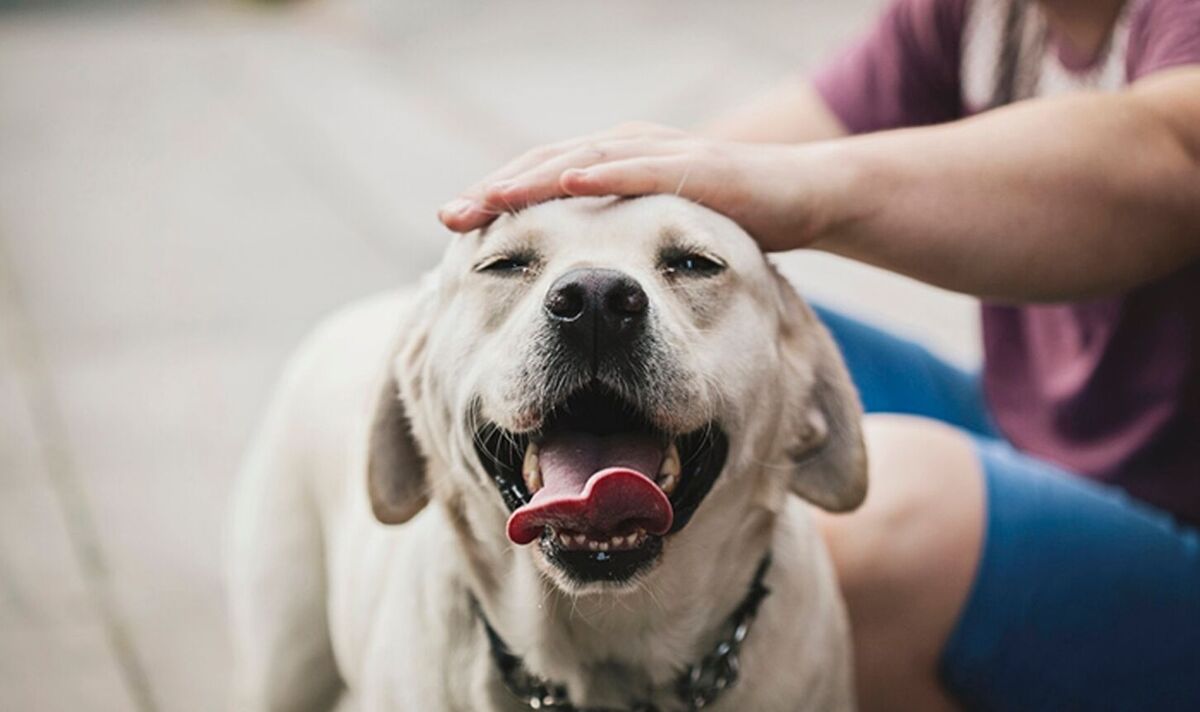
A veterinary nurse has issued tips to ensure Britain’s dogs stay healthy as the latest estimates suggest around half of UK pets are overweight – that’s around 5 million dogs.
Animal experts at charity the People’s Dispensary for Sick Animals (PDSA) are calling for “urgent” action and have launched their annual “Big Weigh In” campaign in a bid to tackle the growing pet obesity crisis head-on.
The PDSA is inviting pet owners to book free weight checks at participating vet practices nationwide throughout February and March.
PDSA Vet Nurse Nina Downing said: “Since our PDSA Animal Wellbeing (PAW) Report launched over a decade ago, overweight and obese pets have always been an issue but almost half of veterinary professionals (49 percent) say they have seen an increase in pet obesity in the last two years. And a quarter say obesity is one of the top five welfare issues in dogs.
“But with more and more people owning a pet these days, especially dogs, we’re now at a point where it needs urgent attention before it gets even worse.”
She said many dogs are served the leftovers which can lead to bad dietary habits and how over-feeding your dog can cause a problem.
She said: “We are all guilty of overindulging at times, but worryingly, 36 percent of dog owners admit to regularly giving their pet leftovers.
“And while a tasty treat now and then, when considered amidst the rest of their food intake, won’t harm your pet, regularly overfeeding them could lead to serious health problems.”
Dr Lauren Hayes, MRCVS, a veterinarian at Royal Canin, said: “We are once again partnering with the PDSA on its Big Weigh In campaign to educate pet owners on the important role weight has on the overall health, and therefore happiness, of our pets.
“As well as booking an appointment, there are some simple measures that can help your pet get to a healthier weight. I would always advise using a digital scale to weigh your pet’s food, as it is surprising how easy it can be to overfeed.
“Consider swapping to low calorie treats or halving the treat to reduce caloric intake. At the appointment, you can also ask your vet about switching to a diet developed for weight loss, such as our satiety nutrition; which has been developed by experts to support safe weight loss while being high in fibre and contains the right macronutrients to keep your pet satisfied.”
She added: “Overweight pets are more likely to suffer from health problems such as diabetes and urinary tract disease – symptoms tend to develop when they are younger and are harder to manage.
“Excess fat can also worsen other health problems – such as arthritis and breathing difficulties – as well as increase anesthetic and surgical risks, all of which could negatively affect your pet’s quality of life.
“Once your pet has reached their ideal size and shape, they will be healthier, happier and more active. They will also have the best chance of living a long, healthy life.”
